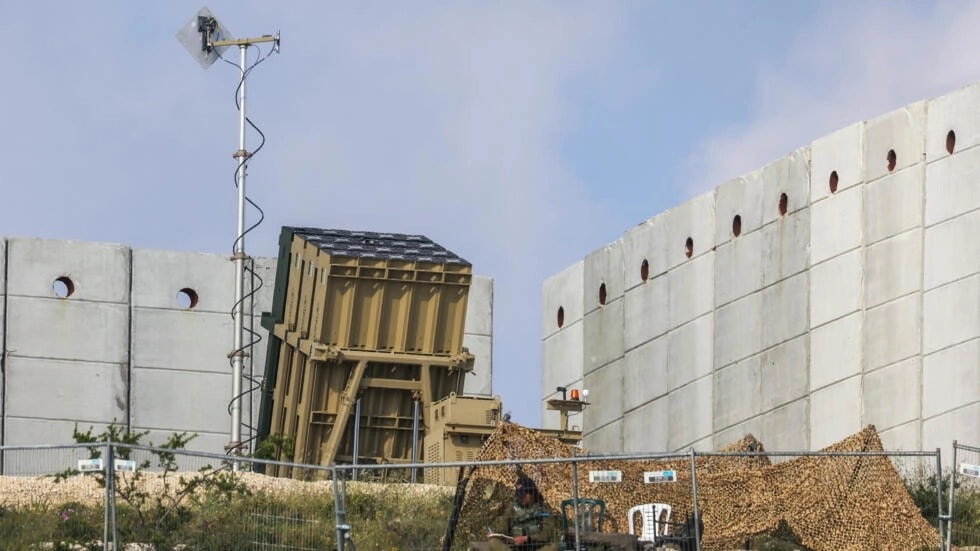Israel builds 'virtual dome' to counter cyber attacks from Iran
(Baonghean.vn) - Israel's Iron Dome defense system has long protected the country from incoming missiles. Now they are building a "virtual dome" in cyberspace to counter online attacks, especially from their enemy Iran.

“It is a silent war, an invisible war,” said Aviram Atzaba, head of international cooperation at Israel’s National Cyber Directorate.
While Israel has been fighting Hamas in Gaza since the October 7, 2023, offensive, it has also faced a significant increase in cyber attacks from Iran and its allies, Atzaba said.
“They are trying to cyberattack everything they can,” he told AFP, referring to Lebanon's Hamas and Hezbollah movements but adding that so far “they have not succeeded in causing any real damage”.
Some 800 major attacks have been thwarted since the war began, he said, targeting government institutions, military and civilian infrastructure.
Some attacks have failed to stop, including those targeting hospitals in Haifa and Safed, in which patient data was stolen.
While Israel has had cyber defenses in place, they have long consisted of “unconnected local efforts,” Atzaba said.
So, over the past two years, the Directorate has been working to build a centralized, real-time, proactive system to protect Israel's entire cyberspace.
Based in Tel Aviv, the agency operates under the prime minister's authority. It does not disclose figures on its staff, budget or computing resources.
Atzaba said Israel cooperates closely with many allies, including the US, because "all countries face cyber terrorism".
“It takes a network to fight a network,” he said.
"An impressive enemy"
Israel's arch-enemy Iran is an “impressive foe” in cyberwarfare, said Chuck Freilich, a researcher at the Institute for National Security Studies, affiliated with Tel Aviv University.
“Their attacks are aimed at disrupting and destroying infrastructure, as well as gathering intelligence and spreading disinformation for propaganda purposes,” he said.
Iran welcomed Hamas' October 7, 2023, attack on Israel, which, according to an AFP tally based on official Israeli figures, resulted in the deaths of 1,170 people, mostly civilians.
According to the Hamas-run Gaza Health Authority, Israel's retaliatory attack on Hamas has killed at least 34,596 people in Gaza, mostly women and children.
Regional tensions have been high, especially after Iran fired hundreds of missiles directly at Israel for the first time last month in retaliation for a deadly Israeli airstrike on the Iranian consulate in Damascus.
It was the most dramatic escalation yet in a years-long secret war between Israel and Iran.
Freilich argued in a study published in February that Iran was relatively slow to invest in cyberwarfare, until two key events caused a shift.
First, leaders noted how anti-government protesters used the internet as a tool to mobilize support for the 2009 post-election uprising. In the crackdown, Iranian authorities cut off access to social media and websites reporting on the protests.
Then, in September 2010, a sophisticated cyber attack using the Stuxnet virus, which Iran blamed on Israel and the United States, caused physical damage to Tehran's nuclear program.
Freilich said the attack "showed Iran's extreme vulnerability and resulted in a serious shock at the national level".
Since then, Iran has accumulated significant expertise to become “one of the most active states in cyberspace,” he said.
Join hands to cooperate
Atzaba stressed that the number of hackers is secondary to the quality of technology and how it is used. “Over the past two years, we have developed a cyber dome against cyber attacks, which functions like the Iron Dome against missiles,” he said.
“With the virtual dome, all sources are brought into one big data pool that allows for a holistic view and calls for a comprehensive and coordinated national response.”
Israel's system has various scanners that constantly "monitor Israeli cyberspace for vulnerabilities and inform relevant parties of means to mitigate them," he said.
Israel's cyber prowess relies on close cooperation between the public, private and academic sectors, as well as Israeli “white hat” hackers who help identify weaknesses.
"We work together," he said.



